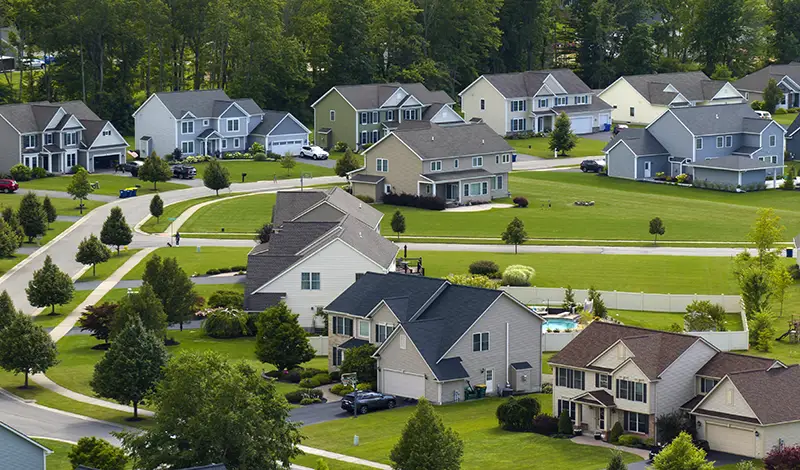The Impact of Remote Work on the Real Estate Market
Published on May 1, 2024 | 4 Minute read

Melanie
Ortiz Reyes
Content Specialist
In recent years, the global workforce has undergone a significant transformation, with remote work becoming more prevalent than ever before. This shift, accelerated by technological advancements and changing work culture, has not only revolutionized how people work but has also had a profound impact on the real estate market.
Changing Housing Preferences
One of the most noticeable effects of remote work on the real estate market is the changing preferences in housing. As more people transition to remote work either full-time or part-time, there is a growing demand for homes that can accommodate work-from-home arrangements. Homebuyers are now prioritizing properties with dedicated home office spaces, ergonomic designs, and high-speed internet connectivity.
The traditional concept of commuting to work has evolved into creating functional workspaces within homes. This has led to increased interest in properties with extra rooms that can be converted into offices, outdoor spaces suitable for work breaks, and homes with flexible layouts to accommodate changing work dynamics.

Shift in Location Preferences
Remote work has also influenced people's choices regarding where they want to live. The ability to work from anywhere has prompted many individuals and families to consider moving away from crowded urban centers to suburban or rural areas. Factors such as lower cost of living, larger living spaces, access to nature, and a quieter lifestyle are driving this migration.
Suburban and rural areas are experiencing renewed interest, leading to increased demand for homes in these regions. This shift has not only impacted local real estate markets but has also prompted developers and urban planners to rethink housing developments and infrastructure outside major cities.
Impact on Housing Market Dynamics
The surge in remote work has had a notable impact on housing market dynamics. Areas that were previously overlooked or undervalued are now experiencing rapid growth as remote workers seek affordable housing options with desirable amenities. This increased demand has, in turn, led to rising property prices in certain suburban and rural areas.
Competitive housing markets driven by remote work trends present challenges for homebuyers, including bidding wars and limited inventory. Real estate agents and developers are adapting their strategies to cater to the needs of remote workers, emphasizing features like home offices, outdoor living spaces, and proximity to nature.

Long-term Effects on Urban Planning
The long-term effects of remote work on urban planning are becoming more apparent as cities adapt to changing population dynamics. While urban centers remain hubs of economic activity and culture, there is a growing emphasis on creating more livable and sustainable communities outside these cities.
Suburban areas are witnessing increased investment in infrastructure, public transportation, and amenities to accommodate growing populations. Urban planners are exploring mixed-use developments, walkable neighborhoods, and green spaces to enhance quality of life for residents who no longer need to commute daily to urban offices.
The Rise of "Work-From-Anywhere" Lifestyles
The concept of "work-from-anywhere" has gained traction, allowing individuals and families to choose their desired locations based on lifestyle preferences rather than proximity to a physical office. This has led to the rise of digital nomads, remote work hubs in scenic locations, and a global workforce that transcends geographical boundaries.
Real estate markets in popular remote work destinations such as coastal towns, mountain retreats, and countryside settings are experiencing increased demand from remote workers seeking a better work-life balance. Local economies benefit from this influx of remote professionals, leading to new opportunities for businesses and communities.
The remote work revolution is not just about changing how and where we work; it's also reshaping the real estate landscape in profound ways. As remote work continues to evolve, it's crucial for home sellers, real estate professionals and developers to adapt to these trends and create housing solutions that meet the needs of a remote workforce. Whether it's designing homes with integrated workspaces, revitalizing suburban areas, or embracing "work-from-anywhere" lifestyles, the future of real estate is intricately linked to the dynamics of remote work.